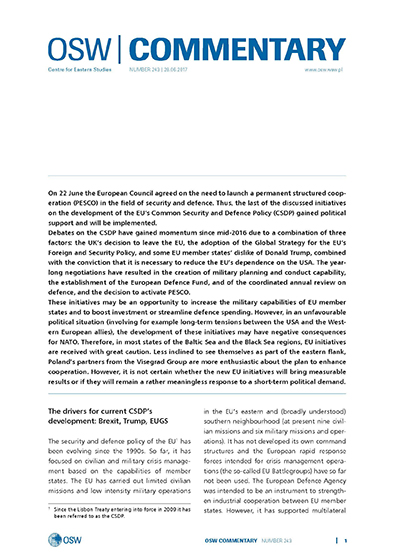Russian nationalism three years after the annexation of Crimea
Russian nationalism three years after the annexation of Crimea
Author(s): Jan Strzelecki
Subject(s): Politics
Published by: OSW Ośrodek Studiów Wschodnich im. Marka Karpia
Keywords: Russian nationalism; annexation of Crimea
Summary/Abstract: The annexation of Crimea and Russia’s military action in the Donbas in 2014 have revealed a major potential for a revival of nationalist sentiments in Russian society. The wave of ‘patriotic’ attitudes that swept through the country back then has enabled the government to co-opt the rhetoric that is typical of nationalist groups. The Kremlin has used this period to shore up its legitimacy among the public and step up control of specific organisations. This has resulted in changes to the structure of the nationalist movement. A weakening was recorded mainly in relation to nationalist organisations that are independent from the government and those organisations which had been involved in the fighting in the Donbas in the initial stage of Russia’s aggression in Ukraine.For the Kremlin, nationalist ideology and nationalist organisations that are unable to act independently are a handy political instrument. They are mainly being used to build support for the government and to consolidate power in Russia. At the same time, the fear that independent nationalist movements may become empowered and organisations that are dependent on the authorities may become emancipated poses a potential threat to the country’s internal stability. This makes the Kremlin strive for greater control of those nationalist groups that still remain somewhat independent.
Series: OSW Commentary
- Page Count: 8
- Publication Year: 2017
- Language: English
- Content File-PDF

